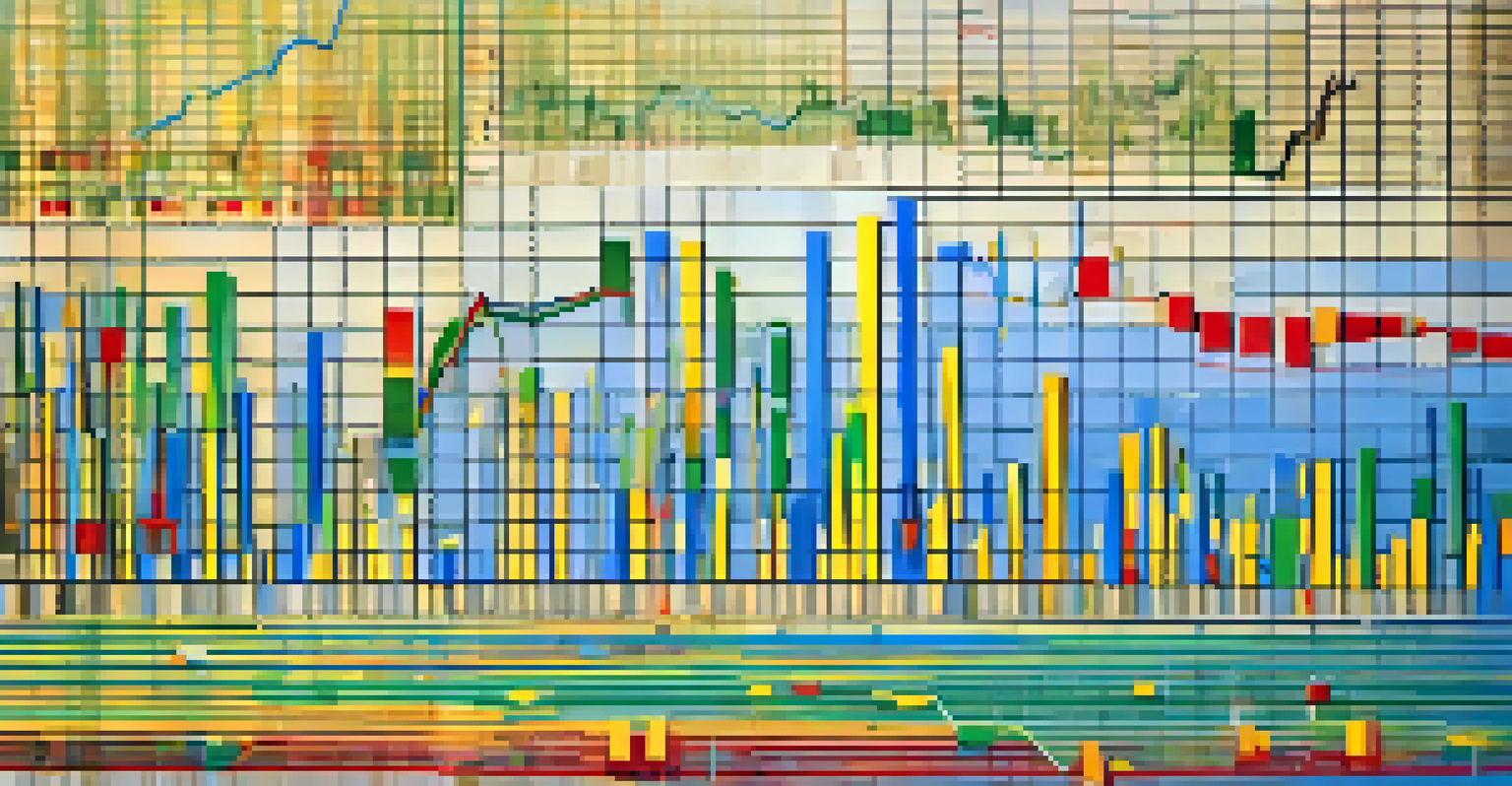Exploring Futures Contracts for Commodity Investment

Understanding Futures Contracts: The Basics Explained
Futures contracts are agreements to buy or sell an asset at a predetermined price on a specific future date. This financial tool is widely used in commodities markets, allowing investors to hedge against price fluctuations. Imagine you’re a farmer; by using a futures contract, you can lock in a price for your crops before harvest, reducing uncertainty.
In investing, what is comfortable is rarely profitable.
These contracts are standardized and traded on exchanges, making them accessible to a wide range of investors. Each contract specifies the quantity and quality of the commodity, ensuring clarity in transactions. By understanding the basics, you can better navigate the complexities of commodity investments.
In essence, futures contracts serve as a vital mechanism for price discovery and risk management in the commodities market. Whether you’re a seasoned investor or a newcomer, grasping the fundamentals is crucial for effective investment strategies.
The Role of Futures in Commodity Investment Strategies
Futures contracts play a pivotal role in commodity investment strategies by providing a way to hedge against price volatility. For instance, if you anticipate a rise in oil prices, buying a futures contract can help lock in lower costs for your business, ensuring stability in your budgeting. This strategic approach is essential for both producers and consumers of commodities.

Additionally, futures contracts can also be used for speculative purposes, allowing investors to profit from price movements without owning the underlying asset. Think of it like betting on the outcome of a sports game; you don’t need to own the team to win a profit if your prediction is accurate. This flexibility adds an exciting dimension to commodity trading.
Futures Contracts Manage Price Risk
Futures contracts allow investors, such as farmers, to lock in prices for commodities, reducing uncertainty in their financial planning.
Ultimately, the effectiveness of futures contracts in your investment strategy hinges on your ability to analyze market trends and make informed decisions. By incorporating these contracts, you can optimize your portfolio and potentially enhance returns.
Benefits of Using Futures Contracts in Commodities
One of the primary benefits of futures contracts is their ability to provide price protection. For example, a coffee shop owner can lock in coffee prices ahead of time, safeguarding against sudden increases in market prices. This price certainty can significantly impact budgeting and financial planning.
The stock market is filled with individuals who know the price of everything, but the value of nothing.
Moreover, futures contracts are highly liquid, meaning they can be bought and sold easily on exchanges. This liquidity allows investors to enter and exit positions quickly, which is particularly advantageous in volatile markets. Imagine being able to react instantly to market changes—this capability is a game changer.
Additionally, futures trading often requires a lower initial capital outlay compared to directly purchasing commodities. This leverage allows investors to control larger positions with less capital, thereby amplifying potential gains. However, it’s essential to remember that leverage also increases risk.
Risks Associated with Trading Futures Contracts
While futures contracts offer numerous advantages, they also come with inherent risks that investors must consider. One significant risk is market volatility; sharp price movements can lead to substantial losses, especially for those using leverage. It’s crucial to have a solid risk management strategy in place to mitigate these potential pitfalls.
Another risk to be aware of is the potential for margin calls. When trading futures, investors are required to maintain a margin account that reflects their positions. If the market moves against you, you may need to deposit additional funds to maintain your position, leading to unexpected financial strain.
Hedgers vs. Speculators Explained
The futures market consists of hedgers, who manage risk, and speculators, who seek to profit from price fluctuations, both playing vital roles in trading dynamics.
Understanding and managing these risks is essential for anyone looking to invest in futures contracts. By staying informed and utilizing sound trading practices, you can navigate the complexities of the commodities market more effectively.
Key Players in the Futures Market Explained
The futures market consists of various key players, each with distinct roles that influence trading dynamics. Hedgers are typically producers or consumers of commodities who use futures contracts to manage price risk. For example, a grain farmer may sell futures to protect against falling prices at harvest time.
Speculators, on the other hand, aim to profit from price fluctuations without any intention of taking delivery of the underlying commodity. They bring liquidity to the market, making it easier for hedgers to enter and exit positions. Think of them as the risk-takers in the market, willing to bet on price movements for potential rewards.
Lastly, brokers and exchanges facilitate trading by connecting buyers and sellers, ensuring a smooth transaction process. Understanding the roles of these players can give you greater insight into market behavior and improve your trading strategies.
How to Get Started with Futures Trading
Getting started with futures trading may seem daunting, but breaking it down into manageable steps can make it more approachable. First, it’s essential to educate yourself about the commodities you’re interested in trading. Whether it’s oil, gold, or agricultural products, knowledge of market factors will empower your decision-making.
Next, consider opening a trading account with a reputable brokerage that offers futures trading. Many brokers provide educational resources and demo accounts, allowing you to practice without financial risk. This step can help build your confidence before diving into real trades.
Future Trends in Trading Evolve
Emerging trends in sustainable commodities and technological advancements are reshaping the futures market, making it more efficient and aligned with investor values.
Finally, develop a trading plan that outlines your goals, risk tolerance, and strategies. Keeping a disciplined approach will help you navigate the ups and downs of the futures market more effectively, setting you up for long-term success.
Future Trends in the Futures Market
As we look ahead, several trends are shaping the futures market landscape. One notable trend is the growing interest in sustainable and environmentally-friendly commodities. Investors are increasingly seeking ways to align their portfolios with ethical standards, prompting exchanges to introduce more green futures contracts.
Additionally, advancements in technology are revolutionizing how futures trading occurs. Algorithmic trading and artificial intelligence are becoming commonplace, allowing traders to analyze vast amounts of data quickly and make informed decisions. This shift is enhancing market efficiency and accessibility.

Lastly, as global markets continue to evolve, we can expect regulatory changes that may impact futures trading. Staying informed about these developments is crucial for investors, as they can influence trading strategies and market dynamics.